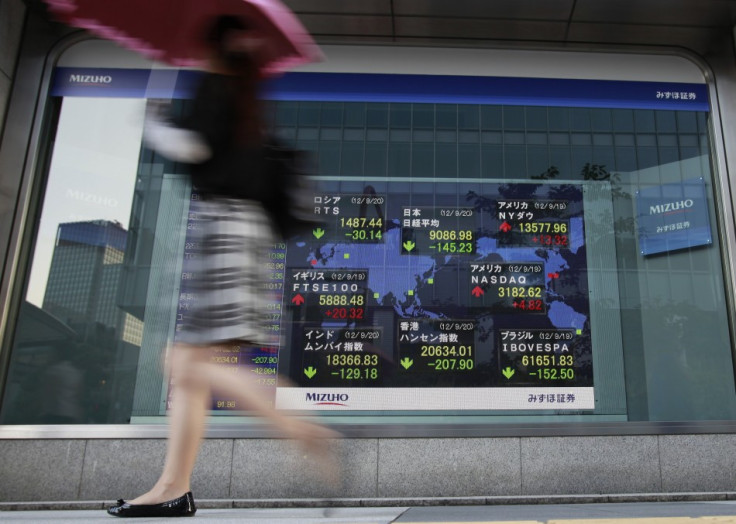Asian Markets Weekly Roundup: Macroeconomic Conditions Boost Sentiments

Asian markets advanced this week with Japanese stocks soaring on the back of a weak yen as traders increasingly turned optimistic on the global economic outlook.
The Nikkei 225 average index gained 2.4 percent in the week while South Korea's KOSPI added 0.6 percent. Australia's S&P/ASX 200 increased 1.8 percent.
In China, the Shanghai Composite Index rose 5.6 percent while Hong Kong's Hang Seng Index picked up 0.6 percent.
Macroeconomic conditions and domestic earnings reports remained a major focus point across the region. Early in the week official figures released in Japan showed that the country's consumer price index dropped for the second straight month in December. Later, further data from the ministry of economy, trade and industry showed that the country's retail sales too slowed in December compared to the previous month, confirming the underlying weakness in the economy.
But despite the weak indicators, optimism prevailed as the newly elected pro-stimulus Japanese government continued to draw an upbeat outlook. The country's cabinet office this week said that economy is well on track to achieve 2.5 percent real GDP growth in the financial year starting April 2013. The upbeat estimates received further boost as the government approved a record ¥92.6 trillion ($1.02 trillion) draft budget for the coming fiscal year which included massive funds for public works spending and rebuilding efforts in the earthquake-hit regions. These funds were in addition to the ¥10 trillion economic stimulus package launched early this month.
However, even as the government stimulus plans and global economic optimism points to Japanese economic recovery, at least some analysts remain unconvinced. Julian Jessop, Chief Global Economist at Capital Economics, opines that "hopes that yet more fiscal stimulus will transform the prospects for Japan's economy, or at least make a meaningful difference to GDP in the next year or so, are overdone".
"The government's credibility on this issue is already being undermined by mixed signals on the needs for fiscal stimulus and for fiscal discipline and by uncertainty over the planned consumption tax hikes."
"And to the extent that fiscal stimulus does work, it may actually weaken the case for additional policy easing from the Bank of Japan."
Nevertheless, as analysts and traders speculated on the cheerful outlook and further stimulus action, the yen extended its weak run against peers in the currency market. The greenback firmed 2 percent against the Japanese currency this week, climbing to over the ¥92 mark. This, along with some strong quarterly corporate earnings reports, helped the Nikkei continue its weekly advances.
Chinese economic indicators too came under spotlight this week. Official figures from the world's second largest economy showed that profits at its industrial firms rose 17 percent year-on-year in December to 895bn yuan. The government's manufacturing Purchasing Managers Index (PMI) showed a modest decline in January, easing to 50.4 from the 50.6 in the previous month. But this decline was largely attributed to the changes in the government's survey methodology. HSBC's final PMI reading continued to paint a rosy picture with the index soaring to a two-year high of 52.3 from 51.5.
US economic concerns made a comeback during the week after official data showed that the world's largest economy contracted 1 percent in the fourth quarter as reduced government spending and lower inventories hit growth. The Federal Reserve, which met for a policy review this week, held its interest rate and stimulus plans steady, while indicating that the labour market will continue to see improvement. The monthly nonfarm payrolls data released towards the weekend, which showed that 157,000 new jobs were added in the previous month confirmed the Fed's speculations.
© Copyright IBTimes 2025. All rights reserved.




















